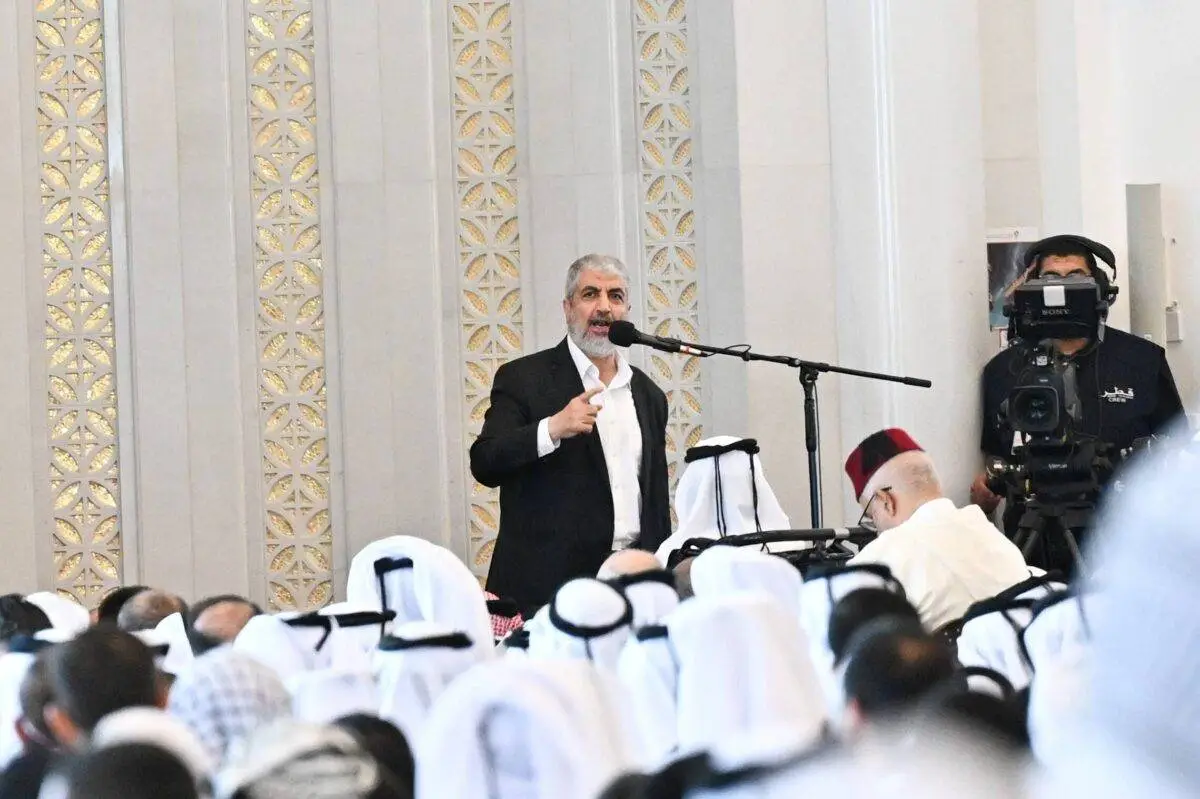
With Sinwar dead, Hamas is expected to appoint a new head from outside of Gaza
According to experts, Yahya Sinwar will probably be replaced by a new political figure headquartered outside of Gaza by the Palestinian terrorist organization Hamas, while his brother, Muhammad Sinwar, is anticipated to take on a more significant role in leading the war against Israel in the region.
Hamas must take into account not only the wishes of its primary supporter, Iran, but also the interests of Qatar, a Gulf Arab nation that is home to all of the major contenders for the position of political head.
In a gunfight on Wednesday, Israeli soldiers assassinated Sinwar, a mastermind of the Oct. 7, 2023, attack that sparked the catastrophic Gaza war. This is the second time in less than three months that Hamas has lost its top leader.
Ismail Haniyeh, its former leader, was assassinated in Iran in July, most likely by Israel.
He brought together Gaza’s political and military leadership when Sinwar took over, but that doesn’t seem likely this time.
It is unclear how Hamas can recover from this most recent setback after more than a year of fierce Israeli attacks that have battered the Islamist organization, killed thousands of its fighters, and removed key figures from both inside and outside of Gaza.
Regarded as a possible successor, Sinwar’s deputy Khalil Al-Hayya issued a belligerent statement on Friday, stating that Israeli detainees would not be released until Israeli troops left Gaza and the war was over.
The Shura Council, Hamas’ highest decision-making body, is responsible with selecting a new leader, and the organization has a history of swiftly and effectively replacing its fallen leaders.
The new leader should have the power to start ceasefire negotiations even if he is not in Gaza, where Hamas terrorists are still holding scores of Israelis hostage. This is because the Shura Council represents all Hamas members in the West Bank, Gaza Strip, Israeli prisons, and the Palestinian diaspora.
Analysts and a Hamas source say that in addition to Hayya, the senior negotiator for Hamas, the other leading candidates for leadership are Haniyeh’s predecessor Khaled Meshaal and Mohammad Darwish, a little-known person who leads the Shura Council.
According to the source, before making a decision, Hamas must inform other regional capitals and Qatar, which has been instrumental in rounds of ceasefire negotiations that have so far failed.
PARTNERING DUTIES
Palestinian affairs specialist Ashraf Abouelhoul anticipated that Sinwar’s duties would be divided between two positions: one managing military affairs and the other managing the political office, which is in charge of establishing relations abroad and formulating policies.
Abouelhoul, managing editor of the state-run newspaper Al-Ahram in Egypt, stated that “Iran is Hamas’ strongest ally, supporting the group with money and weapons, and their blessing is key to who becomes Sinwar’s successor.”
In future ceasefire negotiations, he anticipated that Hamas will uphold its fundamental goals, which include an end to the war and the withdrawal of Israeli soldiers from Gaza. However, it might be more accommodating on certain terms, such the specifics of any agreement that exchanges Israeli hostages for Palestinian prisoners held by Israel.
Benjamin Netanyahu, the prime minister of Israel, said that while the execution of Sinwar was a significant event, the war was not yet done and that fighting would go on until the hostages were freed.
A division of the Sunni Islamist Muslim Brotherhood movement, Hamas was established in 1987. In Hamas institutions, it typically makes decisions by consensus.
Since Sinwar’s death, Hayya, his deputy stationed in Qatar, has temporarily assumed leadership of Hamas in Gaza.
According to experts, the military wing, the Qassam Brigades, will be in charge since Hayya’s daily interactions with men on the ground may be limited due to the ongoing conflict and communication issues.
The “de facto Gaza leader” Hayya was supposed to have no trouble carrying out his duties, according to a Hamas source. According to the insider, Hayya had remained friendly with the military wing and had a tight relationship with Haniyeh and Sinwar.
Even from a distance, Palestinian political analyst Akram Attallah stated that he anticipated the armed wing to accept Hayya’s authority. Additionally, he anticipated that Mohammad Sinwar would become a more prominent member of Hamas overall and in the armed wing in particular.
According to Hamas sources, Mohammad Sinwar, a seasoned leader of the Qassam Brigades, has been on Israel’s most-wanted list for a long time, has escaped multiple assassination attempts, and rarely appears in public.
Israeli estimates indicate that during the Oct. 7 massacre, 1,200 people were killed and 250 others were kidnapped by Hamas-led gunmen. This led to an Israeli offensive that has destroyed Gaza, murdered over 42,000 Palestinians, and forced almost all of its residents from their homes, according to Palestinian authorities.
Hamas viewed Sinwar’s August appointment as a sign of internal cohesion as well as resistance.
His strong Iranian connections were viewed as a plus for his campaign. Both Darwish and Hayya are also seen as close to Tehran, whose support will be vital for Hamas to recover after the war.
Meanwhile, the prospects of the prominent former Hamas leader Khaled Meshaal have been clouded by a record of friction with Tehran after his support for the Sunni Muslim-led revolt in 2011 against Syrian President Bashar al-Assad.
Attallah said Hayya’s ties to Iran stood him in better stead than Meshaal. But if Iran softened its opposition to Meshaal, he may have a chance, he said.
All Categories
Recent Posts
Tags
+13162306000
zoneyetu@yahoo.com



